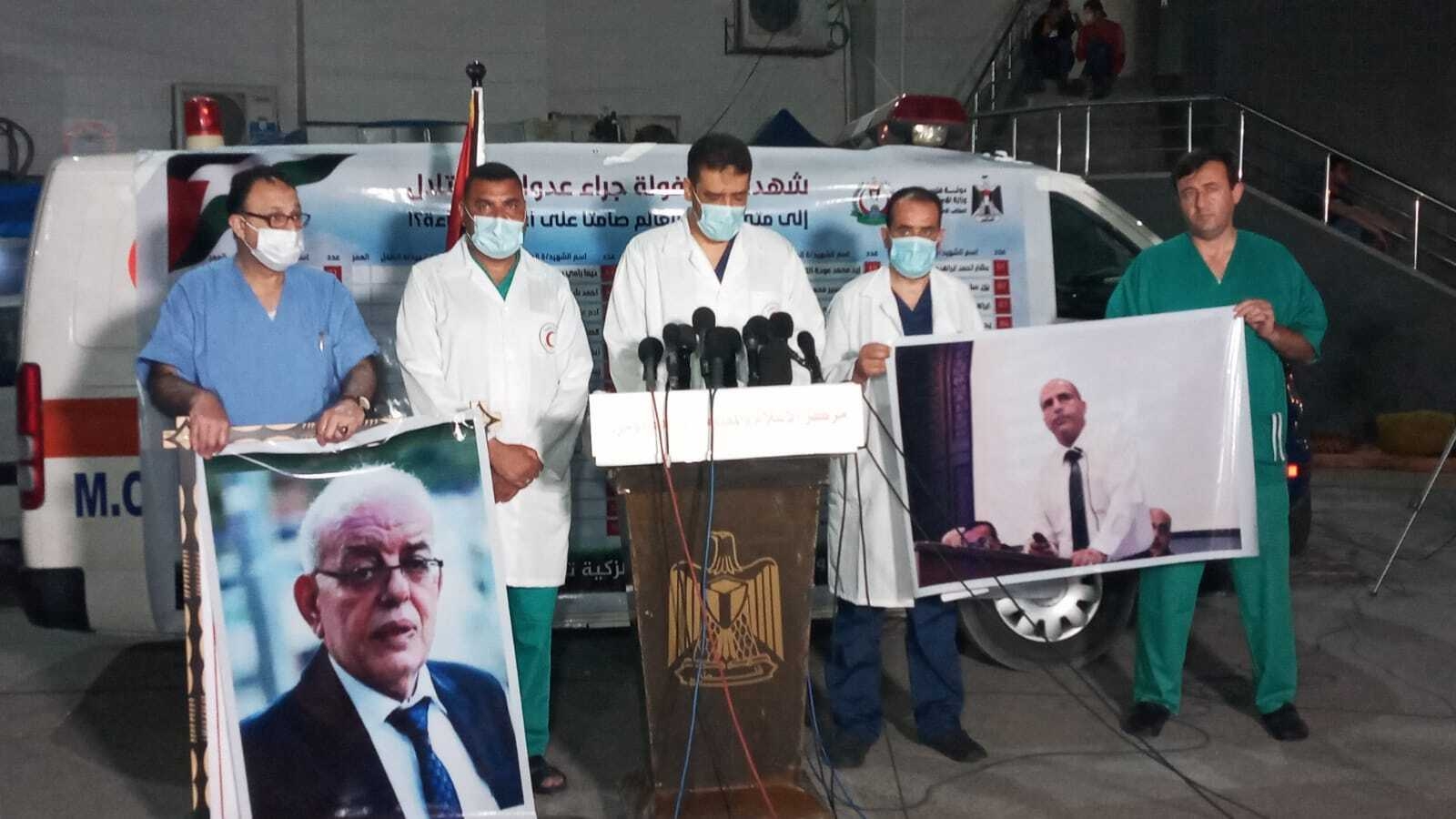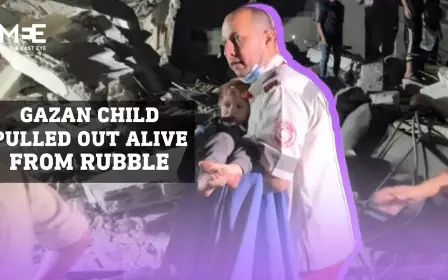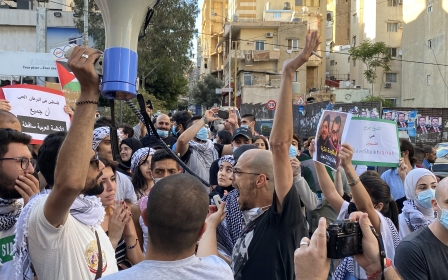Gaza doctors among those killed in Israeli bombardment

Doctors and medical staff have been among the many killed in Israel’s bombardment of Gaza over the past week.
A number of international rights organisations and doctors on the ground have called for a halt in the bombardment of Gaza, particularly near hospitals and medical facilities.
According to Gaza’s Ministry of Health, two doctors have been killed as a result of the air strikes which have targeted Gaza over the past week.
Doctor Ayman Abu al-Auf and Doctor Moean Alalol were among the casualties.
In a statement, the Ministry of Health commemorated the work of the doctors and called for the protection of civilians and medical staff.
New MEE newsletter: Jerusalem Dispatch
Sign up to get the latest insights and analysis on Israel-Palestine, alongside Turkey Unpacked and other MEE newsletters
In a tribute to Abu al-Auf, the ministry said they would name an education hall at al-Shifa Hospital in Gaza after him.
Online, many people paid their respects to the doctors, with many people sharing tributes and prayers for them.
Translation: Gaza doctors perform funeral prayers over the souls of their colleagues, Dr Ayman Abu al-Auf, the head of the internal medicine department at al-Shifa Medical Complex, after his death as a result of the continuous Israeli raids on Gaza.
Doctor Yusuf Abu al-Reesh, the secretary of Gaza’s Ministry of Health, said that days of aggression have resulted in the death of 197 people, including 58 children and 34 women.
Translation: In addition to the list of martyrs that we have witnessed from the massacre at dawn, Dr Moeen al-Aoul and Dr Ayman Abu al-Auf were also martyred. May God have mercy on them and grant them paradise, for them and all children, women, elders and youth.
In a press conference earlier today, Abu al-Reesh condemned the use of aggression targeted at health and humanitarian workers.
A list of demands was also made, including the halting of road closures, which have blocked ambulances from reaching people and hospitals, urgent calls for medical equipment and resources as well as the protection for medical staff on the ground.
“Residential buildings have been destroyed, schools, places of worship, roads, media offices, government buildings and business and electronic lines,” he said. “All of this has had devastating impacts on people and the environment.”
Medical staff and search and rescue teams have been overwhelmed with the surge in patients in recent days, describing horrific scenes at one of Gaza’s biggest hospitals, al-Shifa.
In addition to the deaths, over 1,200 people have also been wounded in Israel’s recent attacks on Gaza.
Translation: The Jordan Red Crescent condemns the violations of international humanitarian law which are amounting to war crimes. Civilians have been targeted, homes destroyed, attacked and places of worship vandalised. The Red Crescent demands the respect of all Palestinian Red Crescent medical staff and the opening of roads to allow for ambulances to pass through and treat civilians.
Gaza's hospitals, already beset by dealing with the Covid-19 pandemic, are struggling to respond to the emergency created by Israeli attacks.
Israeli air strikes have left a large number of the buildings of Gaza in ruins and health facilities across the territory, which is inhabited by around two million people, are scrambling to cope up with the flow of wounded victims.
Gaza's heath activists are expressing fears that continued Israeli attacks would leave the Strip's health facilities incapable of responding to the demand.
"The hospitals will be overwhelmed in the coming hours if Israel steps up its attacks," Aed Yaghi, the head of the Palestinian Medical Relief Society, one of the largest health NGOs operating in Gaza, told MEE.
"This means that these hospitals will fall short of offering services to all the wounded victims arriving."
Egypt has opened the Rafah border crossing a day earlier than planned to allow the passage of students, people needing medical treatment and other humanitarian cases.
Middle East Eye delivers independent and unrivalled coverage and analysis of the Middle East, North Africa and beyond. To learn more about republishing this content and the associated fees, please fill out this form. More about MEE can be found here.




